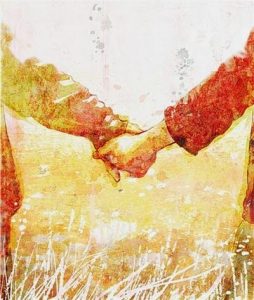 The Columbia City Yoga on-line Moving into Meditation class met this morning. We explored how mindfulness can help us to build beloved community. We all need connection to flourish. We can expand our circles of relationships by examining the obstacles to connection. We can become aware of the implicit bias that we all learn as developing humans. Awareness is the first step in relearning more life-affirming habits of connection.
The Columbia City Yoga on-line Moving into Meditation class met this morning. We explored how mindfulness can help us to build beloved community. We all need connection to flourish. We can expand our circles of relationships by examining the obstacles to connection. We can become aware of the implicit bias that we all learn as developing humans. Awareness is the first step in relearning more life-affirming habits of connection.
In a lively and moving conversation with On Being’s Krista Tippett ,we heard Professor john a. powell’s observations about how we approach belonging. In exploring race he focuses on our shared human needs. He offers many examples of how we can learn to resolve many of our race related social problems. He shares personal memories of learning what is most important in relationship from his father’s example. He is professor of Law, African American, and Ethnic Studies at the University of California, Berkeley. He is the author of Racing to Justice: Transforming our Concepts of Self and Other to Build an Inclusive Society.
We heard about mindfulness approaches to building beloved community from the Boundless Love Project. You can access many resources including their tenets of building beloved community.
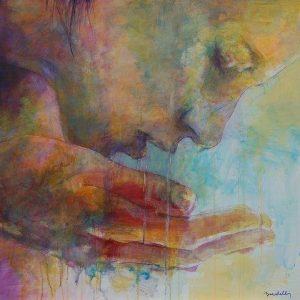 We heard Anu Gupta’s approach to mindfully “breaking bias,” a habit that we learn and can unlearn. You can watch Anu’s TEDtalk, What We Can Save by Breaking Unconscious Bias.
We heard Anu Gupta’s approach to mindfully “breaking bias,” a habit that we learn and can unlearn. You can watch Anu’s TEDtalk, What We Can Save by Breaking Unconscious Bias.
We heard part of poet and author Mark Nepo’s inspirational essay, More Together Than Alone.
It’s so wonderful to be here sharing practice today. In mindfulness we recognize the incredible network of inter-relationships we share. We realize how we sustain each other through this web of relations. I thought a lot about relationships after visiting with four generations of my family last week. I heard so many stories. Stories about the past and dreams about the future. We shared joyful hugs and bittersweet tears. Most of all I experienced the incredible need we all have for belonging. As humans we long for beloved families.
We also work toward beloved communities. In his On Being interview, Opening to the Question of Belonging, professor john powell said:
The human condition is one about belonging. We simply cannot thrive unless we are in relationship. . . . [W]e need to be in relationship with each other. And so, when you look at what groups are doing, whether they are disability groups or whether they are groups organized around race, they are really trying to make a claim of, “I belong. I’m a member.” . . . ” How we define the other affects how we define ourselves. And so, when we define the other at an extreme, it means we have to cut off large parts of our self.
We know from experience that in our beloved community, we are motivated by kindness, compassion, and love for all life. We begin and sustain our efforts with mindfulness. The Boundless Love Project states that with mindfulness we can do the inner work that:
. . . refines our minds and hearts to let go of the greed, prejudice, blame, and falsehood that reside there. As these forces are weakened and eroded, our infinite and all-inclusive kindness, compassion, and goodwill (which were buried underneath them) shine through.
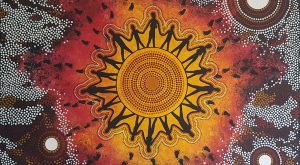 Spending time with my extended family showed me how we are constantly making stories and these stories change over time. I also noticed how different people have different perceptions of the same event, even the same family. So often we attribute intention or motivation to others. We are either mistaken or fail to understand another’s perspective. Our cognitive and emotional response to the world happens at the unconscious level. We see each other through the lens of our conditioning. Our conditioning manifests as bias. In his Breaking Bias with Mindfulness program, Anu Gupta describes the experience of our unconscious bias toward ourselves and toward others:
Spending time with my extended family showed me how we are constantly making stories and these stories change over time. I also noticed how different people have different perceptions of the same event, even the same family. So often we attribute intention or motivation to others. We are either mistaken or fail to understand another’s perspective. Our cognitive and emotional response to the world happens at the unconscious level. We see each other through the lens of our conditioning. Our conditioning manifests as bias. In his Breaking Bias with Mindfulness program, Anu Gupta describes the experience of our unconscious bias toward ourselves and toward others:
It makes us feel that there is something wrong with us, that we did something wrong, and worst of all, we are wrong. It takes away from us this feeling of belonging in our bodies, in our minds in our hearts in our human beingness.
Mindfulness can help us to become aware of our bias and mistaken perceptions. It helps us to become accepting of ourselves – even those parts we don’t like. We practice loving kindness and compassion. Learning these skills we become more able to include, offer compassion and extend patience to those who are different from ourselves. Their appearance is different. They think differently. They live very differently. This is the work of building beloved community. In beloved community differences are welcome. In beloved community we recognize the intrinsic worth of all people. Prejudice, cruelty, and greed are replaced with an all-inclusive spirit of friendship and goodwill.
In his essay, More Together than Alone, Mark Nepo writes:
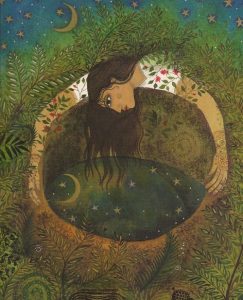 . . . The work of repairing the world is endless and beautiful. And since we are the world, we are here to repair ourselves. . . . The truth is that in the face of adversity, the tool is only as useful as the hand that lifts it. And the hand is only as useful as the mind and heart that guide it. In any given moment where love becomes visible, mind and heart and hand and tool are one.
. . . The work of repairing the world is endless and beautiful. And since we are the world, we are here to repair ourselves. . . . The truth is that in the face of adversity, the tool is only as useful as the hand that lifts it. And the hand is only as useful as the mind and heart that guide it. In any given moment where love becomes visible, mind and heart and hand and tool are one.
Let’s explore the practice of making love visible in mindfulness. Adjust your posture as you need to be comfortable. Your eyes can be open or closed. If open, let your eyes rest at a stationery point in front of you. Take a few deep, slow breaths as you cross the threshold into mindfulness. Let all parts of you be welcome. Your appearance your color, your hair, your sexuality, your interests, your skills, your dreams, your past and your future, parts of you that are creative and compassionate as well as some parts of you that are in need of healing and love. They are all welcome here.
Notice the quality of presence you may be experiencing. Notice what surfaces in your awareness. What is it like to give yourself this space and time to come together with friends? Friends who value loving kindness and compassion. See if you can tune into the sense of loving kindness inside you. You might become aware of the loving associations you have – humans and more than humans that you love. How are they part of your beloved community? Take a moment or two with each being and notice how you feel their presence in your body, your heart, your mind.
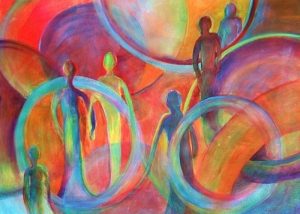 Now bring to mind someone that may think and live differently than you do. It could be someone you know or someone you see during the course of your day. See if you can visualize their presence in some way. However clear or vague their image might be – become aware of what you notice about them. What impressions come to mind? What associations arise? What emotions are you feeling? Are there memories? Fears? Anxiety? Warmth? Goodwill? Is there an absence of feeling? Is it possible to hold your response to the differences you perceive with curiosity? Let mindfulness hold the space in which all is welcome to reveal what may be revealed at this time.
Now bring to mind someone that may think and live differently than you do. It could be someone you know or someone you see during the course of your day. See if you can visualize their presence in some way. However clear or vague their image might be – become aware of what you notice about them. What impressions come to mind? What associations arise? What emotions are you feeling? Are there memories? Fears? Anxiety? Warmth? Goodwill? Is there an absence of feeling? Is it possible to hold your response to the differences you perceive with curiosity? Let mindfulness hold the space in which all is welcome to reveal what may be revealed at this time.
Now allow those imaginings, thoughts and feelings to fade as you return awareness to this present moment of aliveness. Feel your breath, your body, your heart, your mind here in the now. As we near closing know that you are doing the inner work of making beloved community possible. Change and healing take patience, persistence and time. It is the way out of our suffering. It is a way to live with more loving kindness, compassion and joy.
Here are some closing words from Mark Nepo:
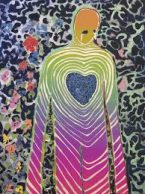 We’re beautifully born whole, though no one can escape the journey of trauma that undoes us. Yet, in time, we can be put back together, if given the chance to know and be known thoroughly. Putting ourselves back together, by finishing what is unfinished within us and between us, allows community to form. But each of us must find our own way to listen to what we’ve done to each other in order to make a university of our suffering. Each of us must find our own way to make public spaces intimate so we can help each other release our feelings. Each of us must find the lapse in our story and figure out what went wrong. This is work worth doing.
We’re beautifully born whole, though no one can escape the journey of trauma that undoes us. Yet, in time, we can be put back together, if given the chance to know and be known thoroughly. Putting ourselves back together, by finishing what is unfinished within us and between us, allows community to form. But each of us must find our own way to listen to what we’ve done to each other in order to make a university of our suffering. Each of us must find our own way to make public spaces intimate so we can help each other release our feelings. Each of us must find the lapse in our story and figure out what went wrong. This is work worth doing.

